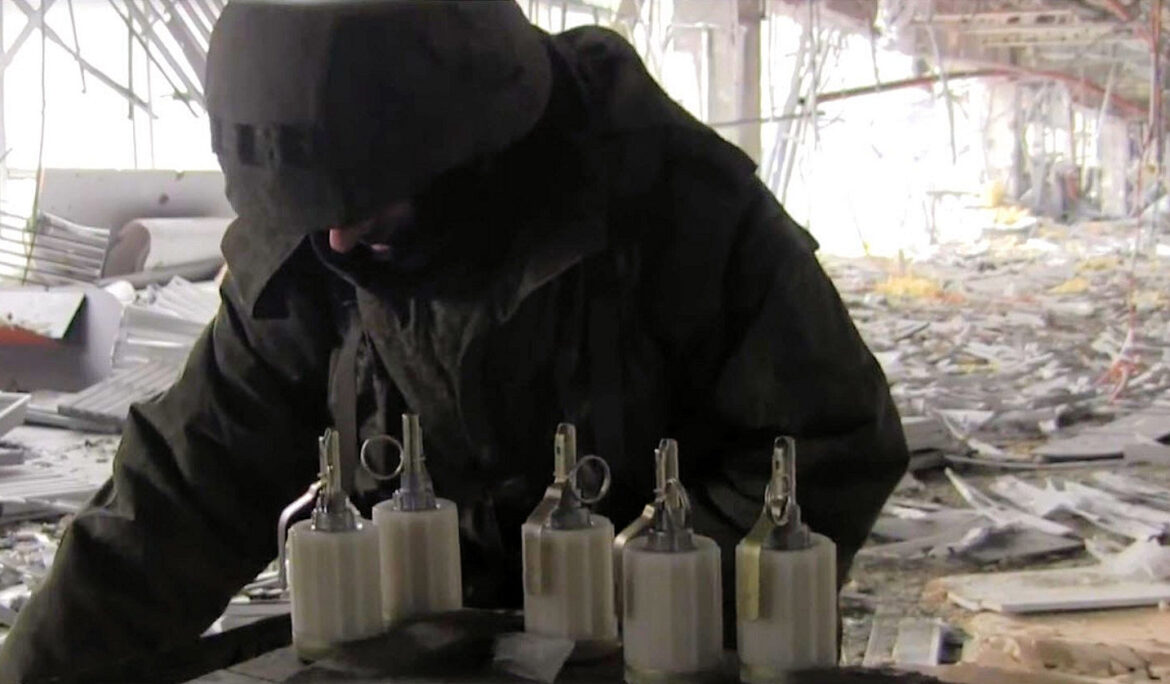Enhancing BTWC Compliance – Workshop Report
Jean Pascal ZANDERS Senior Research Associate Fondation pour la recherche stratégique WORKSHOP REPORT Enhancing compliance of the BTWC through national implementation and other means Brussels, 24 April 2014 (PDF version) I. Participation The workshop, organised by the EU Non-Proliferation Consortium in cooperation with the European External Action Service (EEAS), was held in Brussels on 24 April 2014. Its purpose was to have an in-depth brainstorming session on the future of the Biological and Toxin Weapons Convention (BTWC) with officials from EU Member States. The event was the 1st Ad Hoc Seminar to be organised under the new Council Decision 014/129/CFSP …
On the alleged customary nature of Article VI of the NPT – A Rejoinder to Joyner and Zanders
By Marco Roscini, 5 June 2014 [Marco Roscini, Reader in International Law at the University of Westminster, wrote this rejoinder on Arms Control Law. It is reproduced here with permission, as it forms part of a broader discussion about useful insights for nuclear disarmament to be derived from chemical and biological weapon disarmament. – Jean Pascal] Both Dan and Jean-Pascal offer excellent counterarguments in their replies to my blog post on the customary nature of Article VI, and I thank them for this. After thinking carefully about their comments, I would like to offer some further thoughts. 1) I think that …
NPT Article VI and BTWC Article IX
[This contribution appeared orginally in Arms Control Law, and was in reply to a discussion on the blog. Links to the original arguments are included. – Jean Pascal] This discussion between Marco [Roscini] and Dan [Joyner] on Article VI of the NPT and customary law is instructive. In this particular case, Marco’s application of the notion to a single article rather than the totality of the treaty puzzles me. I would tend to agree with Dan’s counterpoint. However, Dan then refers to the CWC in its entirety to draw an analogy. In my mind a bit problematic for two reasons: …
Roundtable invitation: Syria’s Chemical Demilitarization
INVITATION Syria’s Chemical Demilitarization: Progress, Challenges, and Lessons A Roundtable Discussion with Dr. Paul F. Walker, Amb. Serguei Batsanov, Dr. Ralf Trapp, & Dr. Jean Pascal Zanders Introductory Remarks by Dr. Alexander Likhotal Organized by Green Cross International, Pugwash Conferences on Science and World Affairs, and the Chemical Weapons Convention Coalition Monday, May 19, 2014, 17:00-19:00 WMO Building, 7 bis avenue de la Paix, 2d floor Vieira de Mello auditorium Syria’s accession to the Chemical Weapons Convention (CWC) in September 2013 made it the 190th State Party to the Convention with only six countries now remaining outside the treaty regime. …
Talking disarmament for the Middle East
Last month Noha Tarek from Egypt commented on my reflection that neither members of the Non-Aligned Movement (NAM), with the exception of India, nor Arab League members have contributed financially or in kind to the elimination of Syria’s chemical weapons (CW). Syria participates in both groupings. She linked disarmament elements to a host of intra-regional and external politics and considered the relationship between Syria’s (read: Arab) CW and Israel’s nuclear arsenal. It has taken me a while to reply. I could have easily registered my disagreement with several elements, but that does not open new perspectives for disarmament in the …
Taking stock of the chemical weapon ban
On 20–21 March the University of Rome III hosted a roundtable discussion to reflect on the current status of the prohibition on chemical weapons (CW) and the future challenges to that ban. Although convened by the Law Department, the speakers represented an eclectic group of experts with backgrounds in international law, political sciences, chemistry and biology, as well as practitioners. Notwithstanding, the meeting yielded considerable coherence in arguments, with questions, challenges and supplementary insights contributing further to an already rich multi-disciplinary texture. The Chemical Weapons Convention (CWC) is at the heart of today’s prohibition on CW and their use in …
Public Outreach in Destruction of Syrian CW
Open letter to Secretaries John Kerry and Chuck Hagel February 3, 2014 Secretary of State John Kerry US Department of State 2201 C Street, NW Washington DC 20520 Secretary of Defense Chuck Hagel US Department of Defense 1400 Defense Pentagon Washington DC 20301-1400 RE: Public Outreach and Stakeholder Involvement in Destruction of Syrian Chemical Weapons Dear Secretary Kerry and Secretary Hagel: We the undersigned environmental, public health, nonproliferation, and arms control experts have been closely following all aspects of the Syrian chemical disarmament process. We believe that the most urgent issue today is to make sure that …
Syria's CW declaration: One third larger than assumed
On 28 October, the UN Secretary General Ban Ki-moon presented the first report on the destruction of chemical weapons (CW) in Syria to the UN Security Council (UNSC). The document also included the report by Director-General Ahmet Üzümcü to the Executive Council of the Organisation for the Prohibition of Chemical Weapons (OPCW). The monthly submissions are required under paragraph 12 of UNSC Resolution 2118. Both officials recorded significant progress since the adoption of the key decisions by the OPCW Executive Council and the UNSC on 27 September. They noted Syria’s cooperation, and listed the challenges ahead and the requirements to …
Chloropicrin and its alleged use in the Ukrainian war (Part 1)
On 1 May, the United States formally accused Russia of using ‘the chemical weapon chloropicrin against Ukrainian forces in violation of the Chemical Weapons Convention (CWC)’. It added: ‘We make this determination in addition to our assessment that Russia has used riot control agents as a method of warfare in Ukraine, also in violation of the CWC. The use of such chemicals is not an isolated incident and is probably driven by Russian forces’ desire to dislodge Ukrainian forces from fortified positions and achieve tactical gains on the battlefield.’ Allegations of chemical weapons (CW) use first appeared after the start …
Heard It on the X: The active US biological weapons programme in Ukraine
Do you remember the 1975 song ‘Heard It on the X’ by the Texan blues-rock band ZZ Top? In the 1960s and 70s, the ‘X’ referred to the first letter of the codes for Mexican private radio stations. Contrary to their American counterparts, they broadcast with unlimited wattage and thus covered most of the USA. Anybody could buy any amount of radio time. So, many US preachers and other quacks exploited the opportunity to peddle their ‘truths’, Jesus-autographed prayer cloths, snake oils, or whatever. Almost half a century later, Elon Musk bought Twitter, rebranded it ‘X’, and began pushing his …


